
WHY do birds moult and why in the autumn in our climate? I guess from a periodic need to replace lost or frayed feathers.
Autumn is the season just before the most hostile one, so if you need a good new coat it’s best to get one ready for winter. Also, late summer/early autumn is when there’s food aplenty for the task in hand.
As I write this, most of my birds are well into the moult. The early ones have finished and a few haven’t started yet. The moult can be both a boring and an exciting time. Boring because the birds do little, stop singing and generally look scruffy and at their worst. Exciting because we wait to see how the young birds develop: will they meet our expectations? It’s not just the young birds, as a good or bad moult can make all the difference come the show season.
The moult can transform a bird. Many years ago my father bred a couple of yellow linnet mules. They were good, but not quite good enough. He kept the better bird and after either its third or fourth moult, it was transformed! It ended up with John Ball and was second in a strong class at the Staffordshire BB&MC show. The winner, which had a collar, went on to take best bird in show. It wasn’t as good as John Ball’s bird.
This story is from the September 25, 2019 edition of Cage & Aviary Birds.
Start your 7-day Magzter GOLD free trial to access thousands of curated premium stories, and 9,000+ magazines and newspapers.
Already a subscriber ? Sign In
This story is from the September 25, 2019 edition of Cage & Aviary Birds.
Start your 7-day Magzter GOLD free trial to access thousands of curated premium stories, and 9,000+ magazines and newspapers.
Already a subscriber? Sign In
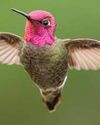
The World's Best-Known Hummingbird?
Intensively studied, the gem-like Anna’s hummingbird is a welcome visitor to the gardens of America’s most populous state: California. Bill Naylor investigates its life history
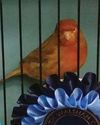
The charm of the English Cinnamon
Despite its long and complicated history, the true Cinnamon canary is still with us – in the hands of a tiny group of breeders. DONALD SKINNER-REID reckons it deserves wider appreciation
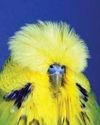
Spangles: a personal overview
FRED WRIGHT relates a budgie story of over-exploitation, consequent problems and abundant potential for the future

New converts to old breeds
Old and rare canaries have a reputation for adding fresh interest and challenge to the hobby. PETE HOOK and NICK JOY agree, and explain the birds’ charm to Dave Brown

Themed aviaries are a hit with the public at annual Stafford show
DECORATIVE AVIARY DISPLAYS from a CBS and an online bird keeping advice group were voted in the top three by visitors for the inaugural Stafford Aviary Competition.
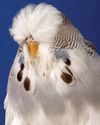
Pieds with potential
More than just a lesser variety, the dominant pied will introduce challenge and change into most studs, reckons CLIVE WAKEMAN. Here he discusses pairings to try and others to avoid

Club News
Welcome to the club and show pages – the bit that’s all about you Results: convention, specialist & rare and Breeder of the Year
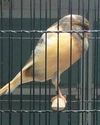
Canaries Month by Month:
With Christmas around the corner, BRIAN KEENAN is well into his winter programme, and reckons he might deserve a nice outcross
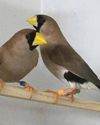
Smart Choice, Docile Nature
Dave Brown welcomes the masked grassfinch to his birdroom and shares advice on this lovely Australian species
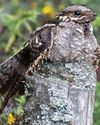
The truth about the ‘flying toad'
Odd local names and weird superstitions can’t hide the beauty and elegance of the nightjar, a species that has made a fascinating subject in a few zoo collections, reveals BILL NAYLOR